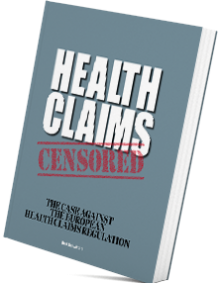In Consumer protection in the EU, a recently published European Parliament Policy Overview, Jana Valant writes that “[t]he aim of European consumer policy is to make the European Union (EU) a tangible reality for 500 million citizens by guaranteeing their rights as consumers. That means protecting consumers from serious risks and threats that they are unable to tackle as individuals; empowering them to make choices based on accurate, clear and consistent information; enhancing their welfare and effectively protecting their safety as well as their economic interests. […]” [i]
Valant also explains that the legal basis for consumer policy is embedded in the “mother” of all European regulations, the Treaty on the Functioning of the European Union. Under Article 12, the Member States determined that, apart from Union activities concerning e.g. the environment, discrimination, inequalities, employment and education, “[c]onsumer protection requirements shall be taken into account in defining and implementing … Union policies and activities.” Under Article 9, the Member States also determined that the Union shall take into account “a high level of … protection of human health.”
Consumer protection and the protection of human health are seperate fields of policy making and activities. Public Health is addressed in the Treaty under Article 168, while Consumer protection is addressed under Article 169. According to Article 169, the Union may only “support, supplement and monitor the [consumer] policy pursued by the Member States.” According to Article 168, Union action in the field of public health shall only “complement national policies.” Both Articles provide that (public) health and consumer protection issues are shared competences of the European Union and the Member States.
The two separate fields became undinguishably mixed in paragraph 3 of what is now Article 114 of the Treaty. [ii] This paragraph provides that the Commission will take as a base a high level of protection, taking account in particular of any new development based on scientific facts, when preparing proposals that will harmonize national provisions in Member States with a view on establishing and improving the functioning of the internal market and which happen to concern health, safety, environmental protection and consumer protection.
Given the fact that the Union and the Member States share competence in the fields of consumer protection and public health, for the NHCR to have the force of law, it could not per se harmonize differences between national provisions concerning the protection of consumers and the facilitation of consumer choice. Differences between national consumer protection and (public) health policies may only be harmonized when such differences form obstacles to the free movement of goods. According to the European Court of Justice (ECJ), for these differences to become “approximatable,” they must either form genuine and serious obstacles to trade between Member States orthe emergence of such obstacles must be likely and the measure in question must be designed to prevent them. [iii]
So, to overcome the problem that the Treaty prohibits the Union from harmonizing national provisions concerning nutrition and health claims, the national provisions concerning them had to be qualified as “obstacles” to the free movement of the food-products carrying the claims. In Recital 2 of the NHCR, one can read how the obstacles were created out of thin air. First of all, the NHCR’s authors reported the possibilitythat different national provisions concerning health claims were causing obstacles to trade: “Differences between national provisions relating to such claimsmay impede the free movement of foods and create unequal conditions of competition.”
In the following sentence, the word “may” was deleted. On the basis of the mere possibility that national provisions concerning nutrition or health claims may impede free movement, the NHCR’s authors firmly concluded that “[t]hey thus have a direct impact on the functioning of the internal market.” This conclusion then opened the door to addressing the real target of the NHCR …. “[i]t is therefore necessary to adopt Community rules on the use of nutrition and health claims on foods.”
This is how national provisions concerning consumer protection and health could be subjected to approximation, in spite of the fact that the Union and the Member States shared competence in these fields. Recital 1 of the NHCR provides: “An increasing number of foods labelled and advertised in the Community bear nutrition and health claims. In order to ensure a high level of protection for consumers and to facilitate their choice, products put on the market, including imported products, should be safe and adequately labelled.”
Ensuring a high level of protection requires drastic measures. Heeding the precautionary principle, the NHCR’s planners determined ex ante facto that all health claims, including the legitimate non-misleading ones, should be prohibited unless they are authorised by the Union and included in the Union’s lists of authorised claims. By the stroke of a pen, food business operators were deprived of their right of freedom of speech and Member States were deprived of their competence to nationally regulate consumer protection and health. By the same stroke of this pen, consumers were deprived of their right to be informed about de facto benefits of foods they consume other than via information authorized de jure by the European Commission.
Six years before the publication of the NHCR, on 7 December 2000, the European Parliament, the Council and the Commission, the same legislating troika that enacted the NHCR, “solemnly proclaimed” the Charter of fundamental rights of the European Union. [iv] In that Charter, the Union’s legislature states:
“Conscious of its spiritual and moral heritage, the Union is founded on the indivisible, universal values of human dignity, freedom, equality and solidarity; it is based on the principles of democracy and the rule of law. It places the individual at the heart of its activities, by establishing the citizenship of the Union and by creating an area of freedom, security and justice.”
When it comes to the universal value called “freedom of expression and information,” the Union’s Charter provides that “[e]veryone has the right to freedom of expression. This right shall include freedom to hold opinions and to receive and impart information and ideas without interference by public authority and regardless of frontiers.”
The Charter also concerns consumer protection. Article 38 provides that “Union policies shall ensure a high level of consumer protection.” In and of itself, this does not constitute a “fundamental right” that may be exercised by each individual citizen of the Union. It merely implies that Union citizens identified as consumers must count on the Union to ensure that they will enjoy a high level of protection.
There is no way that this Article could be interpreted as implying that the Union, in providing this protection, has a right that is more fundamental than the fundamental rights of the Union’s citizens or that to ensure a high level of protection for one group of citizens (consumers) the rights of other citizens may be curtailed or abrogated. When it comes to the fundamental right of freedom of expression, the Charter explicitly provides that “everyone has the right to freedom of expression.” It also provides that this right includes the right “to receive and impart information and ideas” and that it may be exercised by consumers and producers “without interference by public authority and regardless of frontiers.”
Where does that leave the NHCR … ?
The NHCR provides that when it comes to improving the functioning of the internal market and protecting consumers, the citizens of the Union who are imparting “commercial” information concerning the benefits of foods are ex ante facto declared unworthy of the fundamental right to freedom of expression. Likewise, when it comes to information defined as “nutrition and health claims,” all other citizens of the Union, especially consumers, are excluded from the fundamental right to receive such information from the citizens ready to impart it.
You see, just and exclusively for itself, the Union carefully reserved the right to curtail or abrogate the rights it so solemnly proclaimed as “fundamental” and beyond its “interference.” Certainly, the rights are fundamental, but not that fundamental, at least not for their proclaimants. They’re fundamental only when they don’t conflict with the proclaimants’ own prejudices, ideologies, worldviews, political desires and unstoppable affinity for power, mostly cloaked in terms such as “general interest” or “public interest.”
Surely, the Union is “founded on the indivisible, universal values of human dignity, freedom, equality and solidarity,” but with regard to the fundamental rights there’s a delimited “field of application.” Under Article 51, the proclaimants established a specific “field of application” for their Charter. That is to say, its provisions are not addressed to those who may exercise the proclaimed rights.
No, they “are addressed to the institutions, bodies, offices and agencies of the Union with due regard for the principle of subsidiarity and to the Member States only when they are implementing Union law. They [the addressees] shall therefore respect the rights, observe the principles and promote the application thereof in accordance with their respective powers and respecting the limits of the powers of the Union as conferred on it in the Treaties.” It’s not really a “field of application” that is defined here. The text merely states that the Union and the Member States must apply the Charter only “in accordance with their respective powers” and only when creating or implementing Union law.
Then, in Article 52, entitled “Scope and interpretation of rights and principles,” the Charter’s addressees are told how they may set “limitations on the exercise of the rights and freedoms recognised by this Charter.” In other words, this Article explains how the Union and the Member States may curtail or abrogate the Union’s citizens’ universal, indivisible and fundamental rights. Such limitations “must be provided for by law and respect the essence of those rights and freedoms. Subject to the principle of proportionality, limitations may be made only if they are necessary and genuinely meet objectives of general interest recognised by the Union or the need to protect the rights and freedoms of others.” Furthermore, “[r]ights recognised by this Charter for which provision is made in the Treaties shall be exercised under the conditions and within the limits defined by those Treaties.”
And so, we’ve come full circle. Although the Charter is addressed to the makers and implementers of Union law, they may ignore it when that Union law provides for ignoring the Charter, especially where the Treaty contains conditions and limits concerning provisions found in both the Charter and the Treaty. This bars Union citizens access to the rights proclaimed as fundamental in the Charter in all fields that are regarded by the Union as meeting “objectives of general interest.”
On what occasions shall the fundamental rights of individual citizens make way for objectives of the citizens’ “general interest” ? When does a consumer lose his fundamental right to be informed ? He loses this right when the Union determines that he must be protected against exercising it. Since the Union must provide a “high level of protection,” the chance that a fundamental right evaporates in the winds of protection is relatively high. So high, that citizens producing foods for fellow citizens have lost their fundamental right to inform those fellow citizens about the foods’ benefits, for no other reason than that the Union determined that the food-consuming citizens must be protected against exercising their fundamental right to be informed about those benefits
When, according to the Union, one of its citizens is “unable” to exercise, as an individual, a fundamental right, that individual must be protected by first of all depriving him of that fundamental right. Instead of stimulating individual owners of a certain fundamental right to strengthen their position by forming a coalition with other right-owners, the right is usurped by its proclaimants. The right that used to be bestowed on similarly situated individuals is then “securitized,” “pooled,” “politicized” and relabeled as a “general interest.” The larger the number of similarly situated right-owners, the easier it is for the Union to construe an interest that can be labeled as “general” or “public.”
Since the aim of European consumer policy is “to make the European Union (EU) a tangible reality for 500 million citizens by guaranteeing their rights as consumers,” consumers fit and individuals pay the bill.
Bert Schwitters
[i] Consumer protection in the EU; Policy overview; European Parliamentary Research Service; Jana Valant; September 2015.
[ii] Ex paragraph 3 of Article 95 of the Treaty establishing the European Community.
[iii] In Case C-210/03 (Swedish Match), the ECJ judged:
“28. Article 95(1) EC [replaced by Article 114 TFEU] provides that the Council is to adopt the measures for the approximation of the provisions laid down by law, regulation or administrative action in Member States which have as their object the establishment and functioning of the internal market.
29. In this respect, it should be recalled that, while a mere finding of disparities between national rules is not sufficient to justify having recourse to Article 95 EC (see, to that effect, Case C-376/98 Germany v Parliament and Council [2000] ECR I-8419, paragraph 84), it is otherwise where there are differences between the laws, regulations or administrative provisions of the Member States which are such as to obstruct the fundamental freedoms and thus have a direct effect on the functioning of the internal market (see, to that effect, Germany v Parliament and Council, paragraph 95, and Case C-491/01 British American Tobacco (Investments) and Imperial Tobacco[2002] ECR I-11453, paragraph 60).
30. It also follows from the Court’s case-law that, while recourse to Article 95 EC as a legal basis is possible if the aim is to prevent future obstacles to trade resulting from the heterogeneous development of national laws, the emergence of such obstacles must be likely and the measure in question must be designed to prevent them (see, to that effect, Case C-350/92 Spainv Council [1995] ECR I-1985, paragraph 35, Germany v Parliament and Council, paragraph 86, Case C-377/98 Netherlands v Parliament and Council[2001] ECR I-7079, paragraph 15, and British American Tobacco (Investments) and Imperial Tobacco, paragraph 61).”
[iv] The Charter was initially proclaimed at the Nice European Council on 7 December 2000. At that time, it did not have any binding legal effect. On 1 December 2009, with the entry into force of the Treaty of Lisbon, the Charter became legally binding on the EU institutions and on national governments, just like the EU Treaties themselves.




